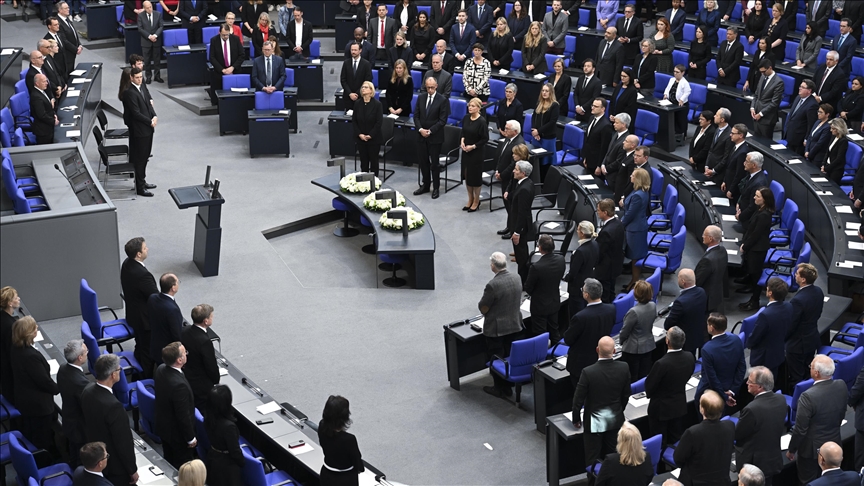German government unveils bill to fast-track deportations
People who are ordered to be detained pending deportation will no longer be provided with state-appointed lawyer
 German Bundestag
German Bundestag
BERLIN
Germany's center-right coalition government on Wednesday unveiled a bill to expedite deportations as part of a major overhaul of its migration policy.
The Cabinet announced a proposal allowing the federal government to classify countries as “safe” via statutory order, bypassing the Bundesrat, where Green and Left party opposition has previously blocked such measures.
Under the coalition agreement between the Christian Democratic Union (CDU), the Christian Social Union (CSU), and the Social Democratic Party (SPD), the government plans to begin by designating Algeria, India, Morocco, and Tunisia as safe countries.
Additional countries may also be added to the list, though the constitutional right to asylum for politically persecuted individuals remains unaffected.
The move aims to speed up asylum decisions for applicants from those countries and facilitate the deportation of rejected asylum seekers.
Most asylum seekers who receive protection status in Germany are entitled to refugee protection or so-called subsidiary protection for people who are at serious risk of harm in their country of origin.
The bill would also eliminate the requirement for a state-appointed lawyer for those held in deportation detention, according to the Cabinet decision.
The legislation still requires approval from the Bundestag, Germany’s federal parliament.
New bill aims to restrict family reunification, end fast-track naturalization
Last week, the government approved a separate bill to restrict family reunification rights and end accelerated naturalization for well-integrated migrants.
According to the proposed law, refugees with subsidiary protection – who are not granted full asylum but face serious harm if returned – will be barred from bringing close relatives for two years. Exceptions for hardship cases are possible, but the criteria remain unspecified.
As of March, around 388,000 people in Germany held subsidiary protection status.
Family reunification for this group was previously suspended from March 2016 to July 2018 under an earlier CDU-SPD coalition agreement.
The new bill would also scrap fast-track citizenship procedures introduced by the previous government, while maintaining the shorter five-year residency requirement for naturalization and the right to dual citizenship.
Tighter border controls and reversal of Merkel-era policy
Germany’s new conservative-led government, under Chancellor Friedrich Merz, has moved rapidly to implement its agenda, including stronger border controls to curb irregular migration.
Soon after the government was formed, the Interior Ministry announced enhanced border controls, as well as new procedures to turn back irregular migrants and asylum seekers at the borders.
Interior Minister Alexander Dobrindt reversed a 2015 Merkel-era instruction that allowed undocumented migrants to enter and claim asylum. The government now insists that asylum seekers must apply in the first EU country they reach.
Germany recorded 352,000 asylum applications in 2023, with the figure declining to around 250,000 last year.
The Merz government has called for faster asylum processing and more deportations – particularly of rejected applicants and violent offenders.
Berlin also plans to conclude bilateral repatriation agreements with transit and origin countries to streamline deportation procedures.








